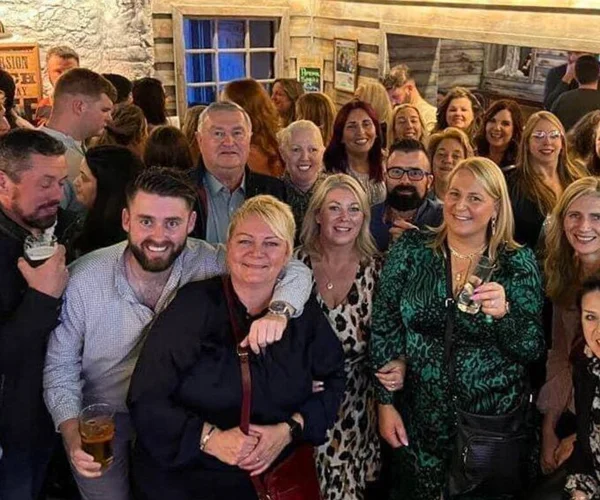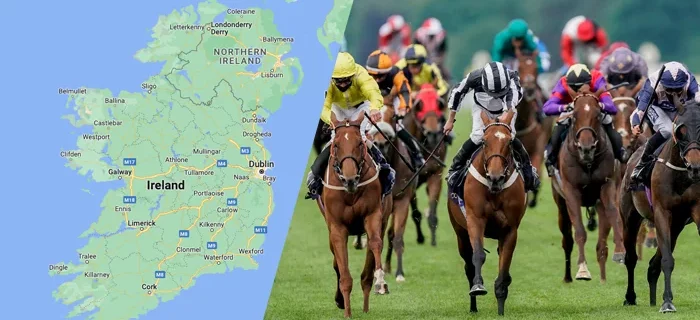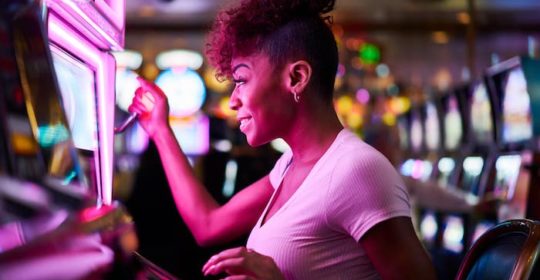Gambling is big in Ireland, from the slot machines in your local pub to bets placed on mobile-optimised online casinos and sportsbooks. But have you ever stopped to wonder who's doing most of the betting?
Table of contents
Turns out, it's not an even playing field between men and women. In this article, we'll dive into what's going on, using real numbers to show that men are far more likely to gamble—and face gambling-related issues—than women.
We'll also explore why that is, from everyday social norms to how gambling is marketed. Our goal? To spark a conversation about making the gambling world fairer for everyone.
The gambling scene in Ireland: A quick look
Gambling isn't just a passing trend in Ireland or in Northern Ireland. It's big business and a popular way to pass the time. But there's a darker side. About 12,000 people aged 15 and up are grappling with serious gambling issues.
That's 0.3% of the entire population. So, it's safe to say that betting and gambling are woven into the fabric of everyday life.
The gender gap in Irish gambling and betting
So, who's really hitting the betting shops and online casinos in Ireland? The numbers show it's mainly a bloke's game. A 2016 study found that 68% of men have tried their luck with a bet, compared to just 54% of women.
And it doesn't stop there; men are also five times more likely to run into problems with gambling.
Now, why is that? Is it because of how society views men and gambling? Or maybe it's down to the types of gambling that are marketed towards men?
There's a lot to think about, but one thing's for sure: there's a real gender divide when it comes to taking a punt in Ireland.
Breaking down the Gender divide in gambling and betting
To really get what's going on with men and women and gambling, you've got to look beyond Ireland. A study on the subject shows this isn't just an Irish issue—it's global.
According to the research, women usually go for games like sports betting, bingo, and slots. Men, on the other hand, are more into skill-based games like poker.

This difference in what men and women prefer to bet on helps explain why we see a gender gap in the first place.
Why the gender gap in Irish betting and gambling?
Several factors are at play when it comes to why more men than women are gambling in Ireland—and it's the same story worldwide.
Society's Rules: Let's face it, society often expects men to be competitive. This might make men more inclined to gamble, especially in games that require strategy and skill.
What We See on TV: If movies and shows mostly feature men gambling, then it's no surprise that it's seen as a ‘guy thing,' further widening the gender gap.
Marketing Matters: The way betting companies advertise can really influence who feels invited to the party. If ads mostly feature men, women might feel it's not for them.
Easy Access: Sometimes, it's just easier for men to get to betting places or use online platforms, which can also add to the gender gap.
Are men naturally more inclined to gamble?
Is it true that men are just born risk-takers who love a flutter more than women? While it's easy to say that men are naturally more into gambling, the reality isn't so black and white.
Sure, more men seem to be placing bets and hitting the casinos, but that doesn't mean they're hardwired to do it. Society, advertising, and even the way we were brought up can all play a part.
So, before we say it's all down to nature, let's remember there's a whole lot of other stuff influencing who's putting down money and who isn't.
Do we need to close the gender gap anyway, and how?
If we want to level the playing field between men and women in the world of gambling, we need a plan with multiple steps.
Change the Ads: Betting companies need to shake up their advertising. Keeping ads gender-neutral can make everyone feel welcome.
Better Support: If someone's struggling with a gambling problem, they need to know where to go for help. Helplines and counselling should be available and suited for all genders.
More Research: We need to keep looking into why these gaps exist. The more we know, the better we can tackle the issue.
Rules and Regulations: The people in charge of overseeing gambling need to keep companies in line, making sure they're advertising responsibly and giving players tools to gamble safely.
Changing Attitudes: Ultimately, we need to change the way we think about men, women, and betting. Equality and inclusivity should be the name of the game.
Wrapping Up
While it's clear that fewer women are hitting the betting shops or online casinos compared to men, is this really a problem that needs solving?
Some might argue it's a good thing that women aren't as caught up in a pastime that has its fair share of risks. After all, gambling can lead to addiction and financial hardship.
So, instead of worrying about why fewer women are gambling, maybe the question should be: Is it such a bad thing?
This flips the script and asks whether we should be concerned about equalising rates of gambling between genders, or if it might be healthier for everyone if gambling is less widespread overall.





